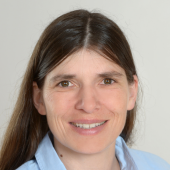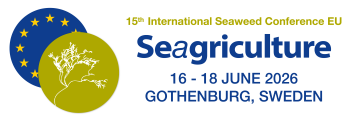About the speaker:
Eva Strothotte is a fisheries biologist. She is an expert on fisheries and aquaculture projects specialised on data monitoring, environmental impact assessment studies while also developing solution approaches to combine economic social and biological goals of large-scale international and national projects. Her area of work includes a broad fishery and aquaculture related field prooved in different projects like UNITED and ULTFARMS.
Company info:

The Forschungs- und Entwicklungszentrum Fachhochschule Kiel GmbH (FuE-Zentrum FH Kiel GmbH) is a research and technology organisation founded in 1995 as a gateway between industry and science. Based on the knowledge and competences of University of Applied Sciences Kiel the company has a wide range of project experience in the field of offshore projects. In 2005 the company has started a project from planning to commissioning of the offshore research platform FINO3 in the North Sea which is now operated by FuE-Zentrum.
The experiences from its operation and the results of the numerous scientific research projects (40 projects since 2009) carried out so far on and at the platform have supported various offshore operators, like aquaculture, wind farm, in their development from conceptualisation to pilot scale and future commercial operation of offshore multi-use projects.
Presentation:
The competition for marine space is a well-recognized challenge. The climate change commitments set by governments - triggering the development of renewable energy production-, the request for food and resource security and driving research for marine biomass production next to societal challenges, increase the transformation of the marine realm. Multi-use offshore projects are experiencing a wide variety of challenges due to their different requirements for licensing, different needs in logistics and operational intensity. Thus two projects, UNITED and ULTFARMS, investigate the viability of aquaculture farms in windparks as multi-use system. Hence, the projects aim is to raise the technological, commercial readiness and innovation capacity of selected multi-use solutions, while reducing associated risks through the development of demonstration pilots in real life environment. This paper takes a special look at lessons learned from the German pilot. Experienced challenges and potential ways of solving unforeseen problems arising from the still largely unexplored multi-use concept are presented.



